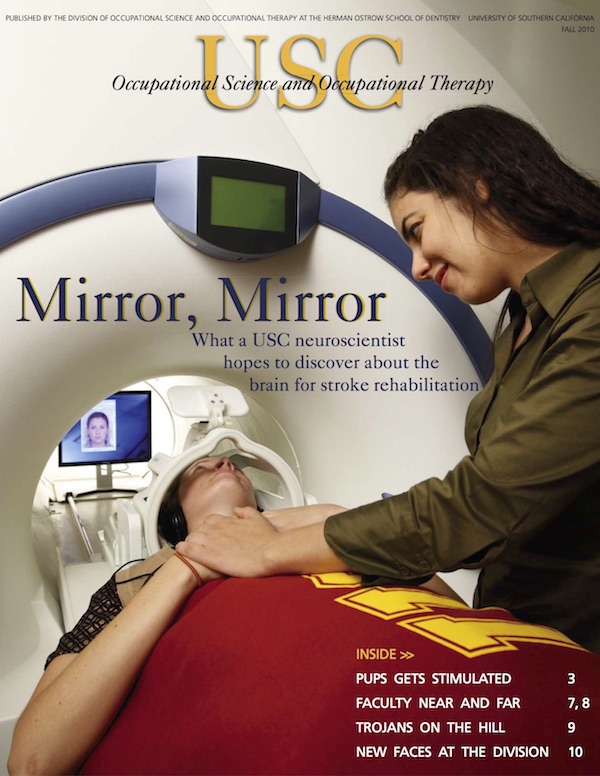Solomon Delivers Invited Lectures Across the Globe
Olga Solomon PhD, Research Assistant Professor in the Division, had a busy summer, delivering three invited lecture presentations across the world between July and October, 2010. Altogether, the three presentations were a good reflection of the academic interests of Dr. Solomon, who is an applied linguist by training and is currently conducting research on various aspects of Autism Spectrum Disorders (ASDs).
In early July, she lectured on the “Sequential Organization of Multimodal Interspecies Interaction: Children with Autism, Therapy Dogs and Other People ‘Doing Together’” at the International Conference on Conversation Analysis at the University of Mannheim in Mannheim, Germany. Conversation Analysis is an ethnomethodological approach to studying social interaction. In the case of Dr. Solomon’s research, these interactions occur between children with autism, their families and the therapy dog. Dr. Solomon hopes that society and science increasingly value children with autism as interactants capable of participation and engagement in everyday activities and the social world around them.
In mid-August, Dr. Solomon traveled to Washington, D.C., to speak at the Disparities in the Identification of Children with Autism Spectrum Disorders symposium, which was co-hosted by the Eunice Kennedy Shriver National Institute of Child Health and Human Development (NICHD), National Institute of Mental Health (NIMH) and the NIH Autism Coordinating Committee. The focus of the lecture was to report on the Autism in Urban Context study currently underway at the Division, which is funded by NICHD and NIMH. Modeled upon a longitudinal ethnographic NICHD-funded study “Boundary Crossings: Re-Situating Cultural Competence” conducted in the Division by Drs. Mary Lawlor and Cheryl Mattingly, “Autism in Urban Context” study uses urban ethnography, conversation analysis and social networks analyses to study the experience of African American families who have a child with ASD. She discussed the study’s implications for earlier autism diagnoses, reduction of health disparities for African American children with ASDs and their families and for improvements in cultural competencies of health professionals. Collaborators on the Autism in Urban Context study include the Division’s Mary Lawlor, ScD, OTR/L, FAOTA and Sharon Cermak, EdD, OTR, FAOTA, as well as researchers at Childrens Hospital Los Angeles and USC’s Keck School of Medicine.
“I enjoy sharing my work with the international research community. But my main goal for these invited lectures was to promote occupational science as a social science and to communicate the contributions it has made and continues to make to the social sciences.”
In early October, Dr. Solomon again traveled to Europe, this time to lecture at The Social Life of Achievement Workshop held at the University of Cambridge, in Cambridge, England. This conference’s topic was the all too often over-simplified construct of achievement in human experiences. The focus of Dr. Solomon’s lecture “Autism and Affordance of Achievement: A View from Occupational Science” was on the relationship between the concept of achievement and the lived experiences of people with autism. Dr. Solomon contends that “achievement” is an idea rarely applied to people with autism. Though autistic savants are usually acknowledged as possessing some form of achievement, the analytic vocabulary to scientifically analyze achievement in autism has not yet been developed. Dr. Solomon hopes that her work and research will propel a scientific and social recognition that people with autism are fully capable of achieving.
Solomon is no stranger to international academic travel. In early 2009, she gave an invited lecture “On ‘Narrative Turn’ in Autism Research” at a plenary conference on narrative at the University of Melbourne in Melbourne, Australia. In the spring of 2008 she delivered a lecture on autism at an international symposium on pragmatics and atypical development at the Université de la Sorbonne Nouvelle, in France.
⋯






